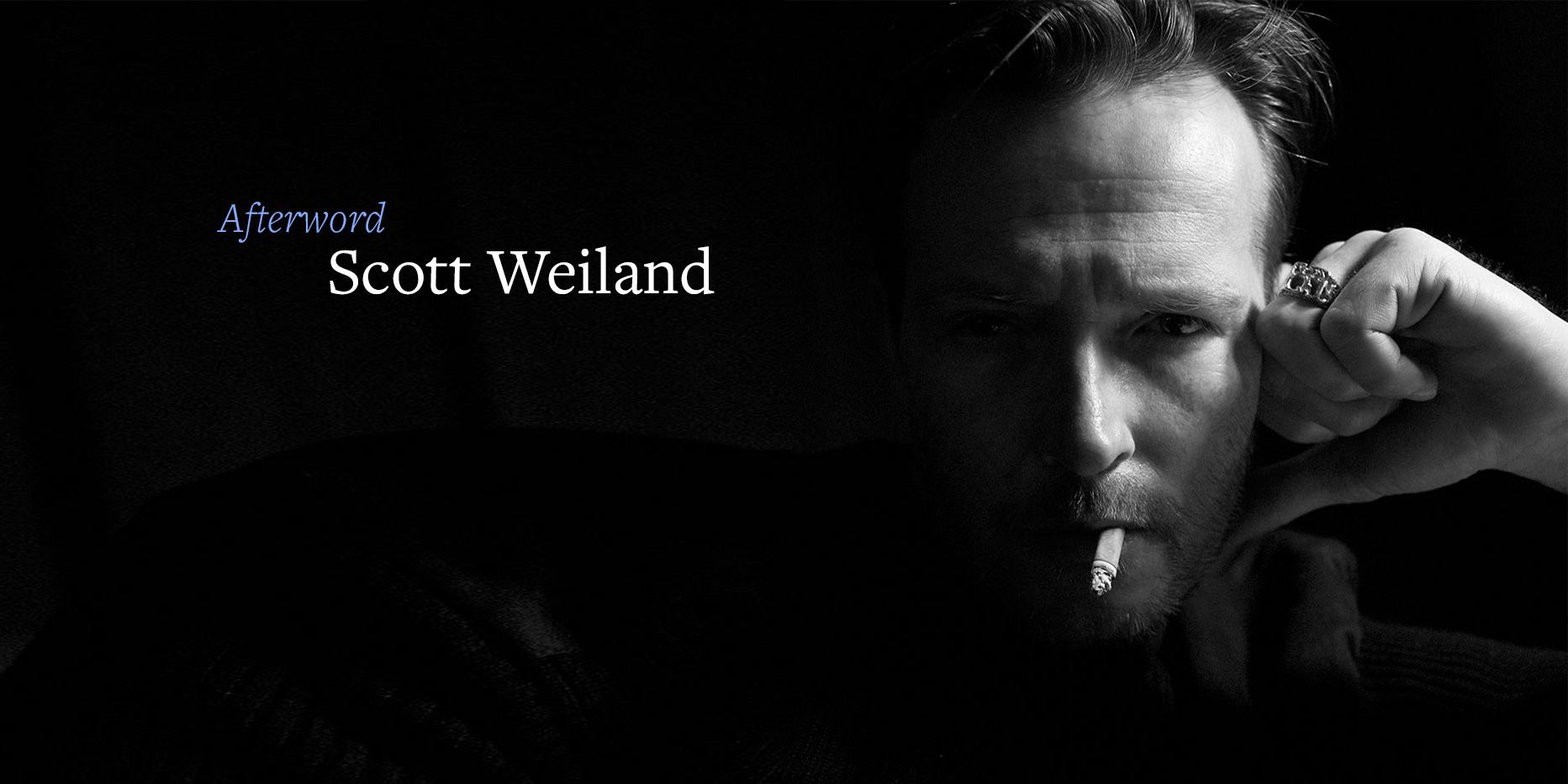

One of the most memorable moments in my young writing career was interviewing Scott Weiland and Daniel Lanois in a limo, cruising around Manhattan. It was for Weiland’s underappreciated 1998 solo album, 12 Bar Blues, which was produced by Lanois, and the singer was funny, insightful, and real. Considering his history of substance abuse, I remember feeling incredibly fortunate to have caught him in a moment of clarity. Two days later, though, he was caught with 10 decks of heroin on the Lower East Side.
Last night, the 48-year-old frontman suffered a heart attack in his sleep while on tour in Indiana with his latest group, the Wildabouts. Police reportedly found cocaine on the band's tour bus and have arrested Wildabouts guitarist Tommy Black; Weiland's wife insists her husband was clean when he died.
I first became a Stone Temple Pilots fan after seeing photos of them dressed as KISS while opening up for the Butthole Surfers, which somehow made their 1992 debut album Core sound so much better to me. There was a sense of romance in Weiland’s delivery that made him stand out from the alt rock radio crowd. In their heyday, Stone Temple Pilots were best when flexing more Smiths than Seattle in their sound, cumulating in the band's unheralded third album, Tiny Music...Songs from the Vatican Gift Shop. That record, with its glam swagger, raw production, and psychedelic flourishes, validated fans who had withstood all the detractors’ rip-off accusations and catcalls.
Speaking of. “Stone Temple Pilots, they’re elegant bachelors,” sneered Stephen Malkmus on “Range Life” back in 1994. “Foxy to me, are they foxy to you?”
Well, yes. I didn’t want to admit it at the time in fear of losing my street cred amongst the record-store crowd, but I listened to STP’s Purple just as much as I did Pavement’s Crooked Rain, Crooked Rain. Despite their existing on the polar opposite ends of the rock‘n’roll spectrum in ’94, both bands were a lot closer in kin than either gave the other credit for in terms of their razor-sharp abilities to craft a good pop hook. Sure, one band expressed itself through bombastic maximalism, while the other liked to soak its melodies in feedback and delay. But whether you’re talking about “Interstate Love Song” or “Cut Your Hair”, when stripped down to the brass tacks of a voice and an acoustic guitar, it’s those hard-to-come-by melodies that catalyze something in our internal chemistry, forcing us to sing along.
Though it didn’t sell as much as their monstrously successful first two albums, Tiny Music, which celebrates its 20th anniversary in March, was the record that undoubtedly showed the world STP were far more than the grunge-clone scarlet letter people were trying to pin on them. "It was [Tiny Music] that got me hooked, a wizardly mix of glam and post-punk, and I confessed to Scott, as well as the band many times, how wrong I’d been in assessing their native brilliance," admitted Smashing Pumpkins frontman (and fellow "Range Life" target) Billy Corgan this morning in a public eulogy.
All you had to do was watch the video for “Big Bang Baby”, where the group sent up Tattoo You-era Rolling Stones clips, to get the feel that their knowledge and artistry ran deeper than the actual third-wave grunge trash they were often lumped in with, like Candlebox and Collective Soul. Listening to songs like “Lady Picture Show”, with its hollowed-out melancholy and nods to Byrds-type jangle, as well as Tiny Music’s pensive closer “Seven Caged Tigers”, you can hear the quartet transcending into something greater before our very ears. Then, there was the comedown. Just as STP reached their artistic peak, they were undone by Weiland’s taste for hard drugs, which caused the group to split for the first time shortly after Tiny Music’s release in the spring of 1996.
During that time, guitarist Dean DeLeo, bassist Robert DeLeo, and drummer Eric Kretz moved on to form the downright-meh group Talk Show as Weiland attempted to reach that next level of artful quality on his own in the form of 12 Bar Blues. With Lanois behind the boards and a killer ensemble of session musicians that included jazz pianist Brad Mehldau, along with guitarist Peter DiStefano, and Porno for Pyros bassist Martyn LeNoble—and even a turn on the accordion from Sheryl Crow—it was an honest collection of songs that allowed Weiland to explore his love for the stuff he was really listening to at the time, like Tom Waits, Brian Wilson, and ELO.
The album ended up on many year-end lists, but sadly, the momentum from this constructive renaissance was mired in more drug arrests and a halfhearted Stone Temple Pilots reunion that yielded two lukewarm albums in 1999’s 4 and 2001’s Shangri-La-Di-Da. Soon after, Weiland opened up a whole new can of worms in the drama of his time with Velvet Revolver, another group that never quite lived up to the promise of its principle components, before crashing his solo career into a sea of mediocrity with 2008’s “Happy” In Galoshes, 2011’s ill-advised holiday album The Most Wonderful Time of the Year,and this year’s not-good Blaster with his Wildabouts.
When I choose to remember this man, I will always remember that charming guy I rolled with back in 1998 and how we talked about our favorite David Bowie albums and the dark magic of Bob Dylan’s Time Out of Mind. That day, I told him how the interview was one of my first big assignments. "Enjoy it before you get jaded," he advised.